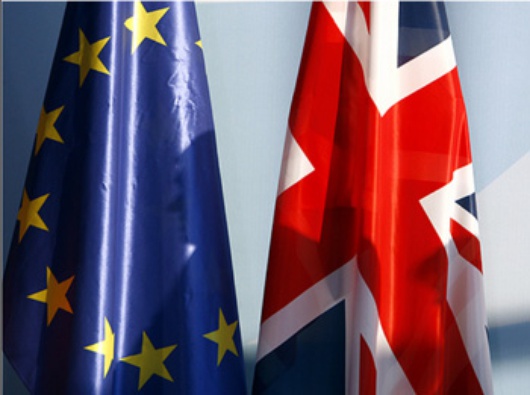
No change in British public opinion on euro
Published on
As the euro celebrates its tenth anniversary and Slovakia becomes the 16th member of the eurozone, British public opinion still remains opposed to joining the single currency despite the falling pound, according to a new poll.
According to a BBC poll, 71% of Britons would vote “no” if there were a referendum on whether Britain should join the euro. Meanwhile, only 23% would vote “yes”, and 6% said they were unsure.
The poll, the first on British attitudes towards euro-membership since the recent financial turmoil, fits the negative trend set by numerous previous polls on the euro carried out during first half of Labour’s period in office. It also indicates that the global economic downturn and financial turmoil has (so far) had no effect on British attitudes towards the euro, despite the euro’s recent strength, worries about the UK economy and the fall of the pound.
According to the poll, 69% of people felt recent changes in the exchange rate made no difference to whether Britain should join the single currency. Only 15% said that the pound's fall made them keener to switch to the euro while 14% said it made them less inclined to abandon the pound.
This contrasts countries like Denmark (and Iceland) where arguments portraying the euro as a “safehaven” in the global financial turmoil have helped swing public opinion, once strongly opposed, more towards euro-membership in recent months.
The British Minister for Europe, Caroline Flint (Labour), dismissed the BBC poll arguing that UK euro-membership debate was a “red herring”. Meanwhile, the Eurosceptic Conservative opposition party reiterated its recent pledge “never” to join the euro.
Recent euro return to limelight
Carried out by the pollsters ICM between 19 and 21 December 2008, the BBC commissioned survey of 1,000 adults comes after the euro’s recent return to the limelight in Britain following an absence of many years.
The sharp fall of sterling against the euro in the financial crisis and global economic downturn has helped make the euro headline news, and rejuvenate debate on the euro amongst commentators and experts for the first time in five years.
By the end of December 2008, the pound neared parity with the euro (£1 = 1.0198 euros). A year earlier (December 2007), one pound would have bought more than 1.4 euros.
Comments made by European Commission President José Manuel Barroso also sparked speculation in the weeks preceding the BBC poll survey that the Labour government was considering UK entry to the single currency.
The government was swift in rejecting any such talk and reaffirmed that plans for joining the euro were “not for now”. Meanwhile, the Conservative opposition party pledged that it would “never” join the euro.
 Photo taken from Downing Street flickr (Copyright, Reuters)
Photo taken from Downing Street flickr (Copyright, Reuters)
UK public opinion on EU membership also unchanged
The BBC poll follows another recent poll which also suggests that not much has changed in British attitudes towards Europe.
Published last December, the latest Europe-wide Eurobarometer survey indicates that British attitudes to the broader question of EU membership have also remained more or less the same.
According to the poll, British public opinion remains low, and split three ways – those with positive views of EU membership (32%) slightly ahead of negative views (30%) and those in the middle (“Neither a bad or good thing”, 31%).
On average, 53% of EU citizens currently think that membership is a “good thing”. Meanwhile, the poll shows the Netherlands to be the EU country with the most positive support for EU membership - 80% say that EU membership is “a good thing”. The Netherlands is followed by Luxembourg (71%) and Ireland (67%).
by Charles Morgan



